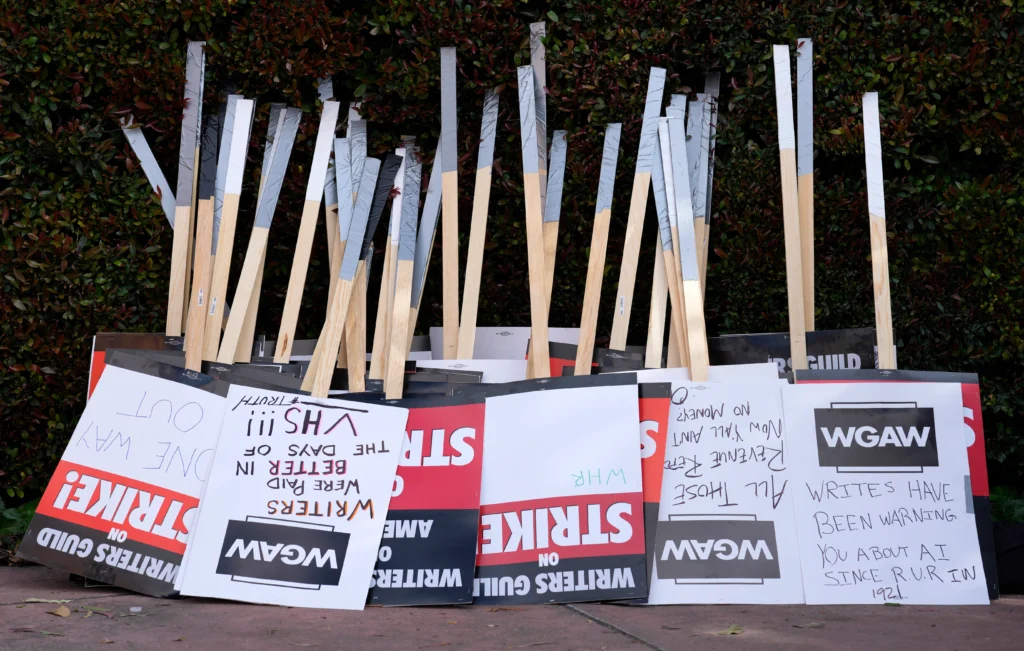Newsmatro

HOLLYWOOD – After nearly five months of deadlock, Hollywood screenwriters and studios have reached a tentative agreement to bring an end to the writers’ strike that had paralyzed the TV and movie industry.
The Writers Guild of America (WGA) announced the breakthrough deal late Sunday in negotiations with the Alliance of Motion Picture and Television Producers (AMPTP), representing studios, streaming services, and producers.
“The WGA and AMPTP have reached a tentative agreement,” declared the Writers Guild West on its official social media account on Sunday. “This was made possible by the enduring solidarity of WGA members and extraordinary support of our union siblings who stood with us for over 146 days.”
However, the three-year contract agreement still requires approval from the guild’s board and members before the strike officially concludes. Meanwhile, negotiations between Hollywood actors and the studios remain unresolved, with the 160,000-member SAG-AFTRA strike ongoing since July.
SAG-AFTRA released a statement on Sunday congratulating the WGA negotiators and expressing readiness to continue their own negotiations with AMPTP once there is a meaningful engagement on their proposals.
The resolution of the writers’ strike comes after months of stalled talks and a pivotal joint meeting on September 20 between union officials and top media CEOs, including Disney’s Bob Iger, Warner Bros. Discovery’s David Zaslav, NBCUniversal Studio Group’s Donna Langley, and Netflix’s Ted Sarandos. Marathon discussions over the weekend culminated in Sunday’s announcement.
The writers’ strike, which began on May 2 after 11,500 WGA members ceased work upon the expiration of their contract, marked the first writers’ strike since the 100-day walkout in 2007-08. In a historic move, SAG-AFTRA, the actors’ union, joined screenwriters on the picket lines on July 13, marking the first joint strike in over six decades.
During the strike, screenwriters advocated for increased pay, addressed concerns about dwindling writing staffs in the streaming era, and raised issues related to the use of artificial intelligence in script creation.
The strike had a profound impact on TV and movie production, leading to the suspension of numerous shows. Late-night TV programs, reliant on writers for monologues and jokes, went dark, including “The Tonight Show,” “The Daily Show,” “Jimmy Kimmel Live,” and “Late Show with Stephen Colbert.”
Daytime talk shows like “The Drew Barrymore Show,” “Jennifer Hudson Show,” and “The Talk” also halted production, later reversing plans to restart amid social media backlash and picketing.
Networks scrambled to fill primetime slots with reruns, reality shows, and game shows, rearranging fall TV schedules to cope with the lack of new content. If the strike had persisted into October, it could have wiped out the entire TV season.
With the tentative agreement between writers and studios, the potential for scripted TV show production to resume is on the horizon. If actors reach a speedy settlement as well, new episodes could be ready to air in early next year, offering relief to the industry and viewers alike.